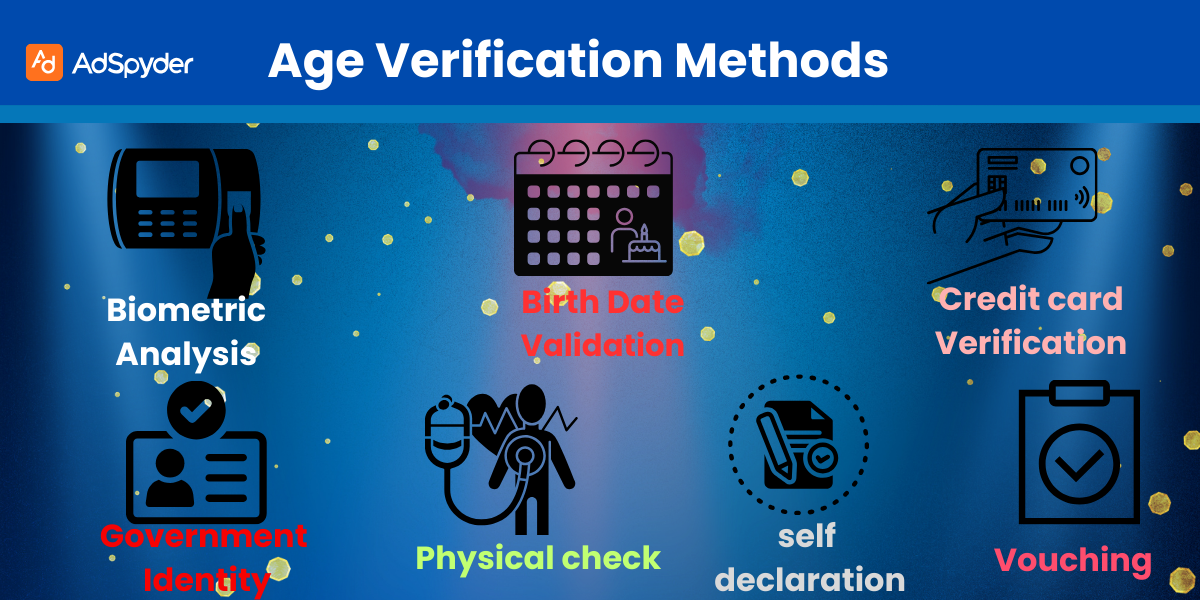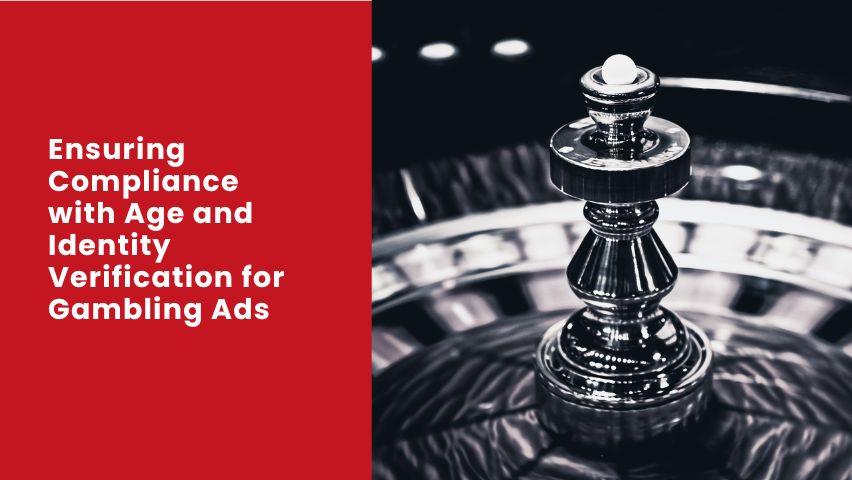In the realm of gambling advertising, ensuring age verification in gambling and robust identity checks stand as the cornerstone of responsible and lawful practices. It is the solemn duty of advertisers to institute stringent verification procedures, preventing underage gambling and adhering to regulatory mandates. This blog delves into the pivotal role of age and identity verification in gambling advertising, explores diverse verification methodologies, and underscores the significance of responsible ad targeting.
Age Verification in Gambling: Methods for Gambling Ads

Age verification constitutes a fundamental tenet of responsible gambling advertising. Advertisers must institute dependable age verification systems to thwart minors from accessing gambling content. These systems employ an array of techniques, encompassing date of birth validation and scrutiny of identity documents, to affirm that users meet the requisite legal age for gambling. These steps form a part of promoting responsible gambling across the digital space.
In the United Kingdom, the Gambling Commission mandates age verification for all users before granting access to gambling content, with the express purpose of forestalling underage gambling.
Compliance with Age Restrictions Across Jurisdictions
Distinct jurisdictions may proffer disparate age prerequisites for gambling. Advertisers must meticulously ensure compliance with these age requisites to forestall legal entanglements. By comprehending the age restrictions in each target market, advertisers can institute apropos age verification processes in alignment with regulatory benchmarks. They can also find this as an advantage over their competitors when it comes to runnign ad campaigns.
In the USA, the lawful gambling age varies by state, with most states stipulating a minimum age of 21 for casino gambling and 18 for lottery and pari-mutuel betting. Complying with these laws from local regulatory bodies require adding checks for age verification. These checks need to be different based on geolocation and should be monitored closely.
Identity Verification and KYC (Know Your Customer)
Identity verification, often referred to as Know Your Customer (KYC), emerges as yet another vital facet of responsible gambling advertising. The verification of user identities acts as a bulwark against fraudulent activities like the creation of multiple accounts or identity theft, thereby fostering a secure gambling milieu. Nonetheless, advertisers must adroitly navigate the fine line between acquiring requisite user information for verification and respecting user privacy.
A significant 62% of consumers nurse concerns regarding sharing personal information online, underscoring the pivotal role of privacy in identity verification processes.
Geolocation and IP Verification
Geolocation and IP address verification constitute indispensable tools in ensuring ad dissemination within authorized regions and deterring users from accessing gambling advertisements in proscribed territories. In regions where gambling is sanctioned, advertisers can target their ads specifically. Conversely, they can prevent ad delivery in areas where gambling is prohibited.
In the United States, the regulation of online gambling operates at the state level, and geolocation verification is employed to ascertain that users are within the borders of states where online gambling is legally sanctioned.
Age Verification in Gambling: Responsible Ad Targeting

Responsible ad targeting necessitates the meticulous calibration of advertising strategies. This is to ensnare the requisite age cohorts while eschewing ad placements on platforms that are rife with underage users. Advertisers must tread carefully when selecting ad platforms to ensure that their campaigns do not inadvertently ensnare underage audiences.
A disconcerting 48% of teenagers admit to encountering online gambling ads, despite being below the legal gambling age.
Conclusion
Adhering to age verification in gambling and identity verification requirements represents a cardinal imperative for gambling advertisers. This underpins responsible and legal conduct. Age verification protocols serve as a bulwark against underage gambling. Also, identity verification and KYC foster an environment of safety and security. Ads are beamed to authorized regions through geolocation and IP verification. Responsible ad targeting averts inadvertent outreach to underage cohorts. By investing in age and identity verification, gambling advertisers can make laudable contributions to the cause of responsible gambling and perpetuate a positive industry reputation.



